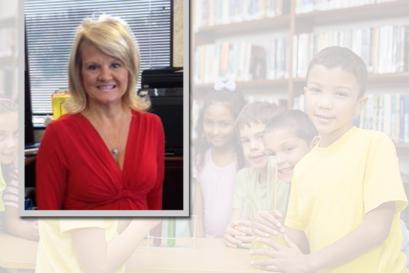What were you thinking?
April 13, 2017

As educators, we are constantly looking for ways to promote cognitive thinking. What does that look like? How can we ensure opportunities that engage student’s thinking?
In the world of gifted education, thinking is the hallmark of good teaching and learning. If we provide the avenue for thinking, our students will march onward and upward. We must set the stage for practice and problem solving to nurture the culture of thinking. What are the qualities related to good cognitive thinking? Classrooms that seek to strengthen student thinking and metacognition advance application of learning in new and different situations.
There are really three basic dimensions of thinking; convergent, divergent and evaluative. There is a place and time to manage all, however, gifted students thrive and grow in an environment where divergent thinking is honored, valued and celebrated. Divergent thinking is a powerful engine that ignites the gifted mind to all the possibilities. The 21st century demands our learners be equipped with tools that engage thinking on all levels. A classroom that actively engages students in a culture of thinking supports the “Habits of Mind” attribute promoting students as thoughtful, reflective problem solvers beyond the classroom. Finding cognitive processing strategies to develop these deep understandings is the key.
Kendall Hunt William & Mary Center for Gifted Education advanced curriculum frameworks in language arts, science and social studies support the power of thinking through dynamic, interdisciplinary units that build on critical thinking, conceptual thinking and underpin the value of supporting gifted learners. It’s all about the thinking. It’s worth it. Be the catalyst that creates, designs and fosters deep personal thinking.
Barbara Hinton, M. Ed. has worked as a consultant for Kendall Hunt Publishing providing national professional development training and implementation for Center for Gifted Education units (Language Arts, Social Studies, and Science) for the past 6 years. Additionally, she has worked in Allen ISD for 18 years and served as District Advanced Academics and Gifted Coordinator since 2003. She has presented at TAGT, CAG, MET and NAGC as well as hosting numerous professional development presentations local, state, and national. Barbara has a Master’s degree in elementary curriculum and instruction. She has been in education for 34 years.
"CFGE Teaching Units foster the 21st century skills of collaboration, communication, creativity and problem solving. These thematic teaching units have provided my district, Allen ISD, Allen Texas with a unique and dynamic set of open-ended learning opportunities that are research-based and geared toward our high ability, gifted learners. The CFGE units provide teachers with meaningful lessons to promote interest, engagement and authentic understandings across disciplines. The CFGE inquiry-based teaching models provide differentiation and support levels of depth and complexity across content areas. Boost and inspire your students to navigate the CFGE Language Arts, Social Studies and Science units."
